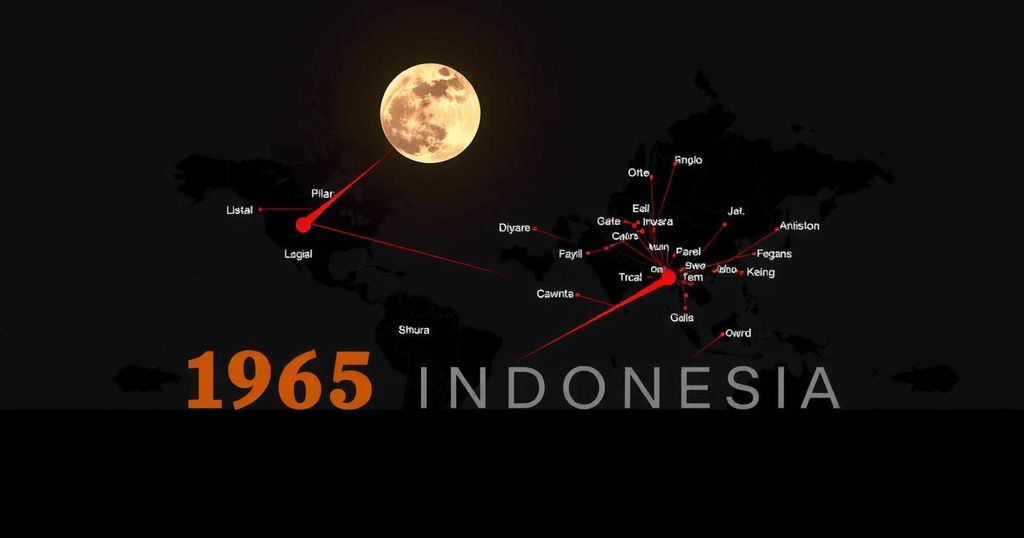An international tribunal concluded that Indonesia committed crimes against humanity during the 1965-66 mass killings, implicating the U.S., U.K., and Australia in the atrocities. The tribunal’s findings include an estimated 400,000 to 500,000 murders, widespread imprisonment, and other violations. The Indonesian government rejected the tribunal’s recommendations to apologize and investigate the crimes. Survivors view the ruling as validation of their suffering, emphasizing the need for accountability and acknowledgment of past injustices.
An international panel of judges has famously concluded that Indonesia committed crimes against humanity during the mass killings of 1965-66 and stated that the United States, the United Kingdom, and Australia played varying roles in these atrocities. On a video link, presiding judge Zak Yacoob, a former South African Constitutional Court Justice, declared that the Indonesian state bears responsibility, particularly the military, for horrendous acts that included an estimated execution of between 400,000 to 500,000 individuals, and the abusive imprisonment of approximately 600,000 others. Other violations cited include forced labor, torture, sexual violence, and the deprivation of citizenship for countless individuals. The violence was ignited by the murders of several generals by suspected communists, which prompted a brutal crackdown led by General Suharto against the Indonesian Communist Party (PKI) and its affiliates, including ethnic Chinese individuals. The tribunal’s judgement further implicates Suharto’s role in the orchestrated violence and notes the incendiary propaganda that preceded it, asserting that the acts amounted to an intent to destroy a particular population segment, thus qualifying as genocide. Furthermore, the tribunal held that the United States, the United Kingdom, and Australia were complicit in these human rights violations. The judges recommended that the Indonesian government issue formal apologies to victims and initiate investigations into the crimes. However, Chief Security Minister Luhut Panjaitan firmly dismissed these recommendations, asserting Indonesia’s sovereignty and intention to address the issue independently, adhering to universally accepted values. Rights advocate Todung Mulya Lubis noted the tribunal’s limitations due to its non-binding nature yet emphasized the critical need for accountability and the end of impunity regarding the 1965 atrocity. During four days of hearings in the Hague, witnesses, including those who suffered sexual violence, testified in a protected manner. Human rights lawyer Nursyahbani Katjasungkana urged the complicit nations to acknowledge their involvement, arguing that evidence from diplomatic exchanges substantiates such claims. The initial government-backed symposium on the 1965 tragedy took place in April, but its recommendations remain largely undisclosed to the public. For survivors and their families, this judgment represents validation and acknowledgment of their suffering and grievances. Journalist Febriana Firdaus conveyed a poignant reflection on the ruling’s significance, stating that it has illuminated the need for a comprehensive discussion about the events of 1965.
The 1965 mass killings in Indonesia were a critical event in the nation’s history, wherein thousands of people suspected of being associated with the Indonesian Communist Party were brutally murdered following the assassination of several military generals. General Suharto capitalized on this chaos to consolidate power and initiated a widespread purge, labeling communists, leftists, and certain ethnic groups as enemies. This period has long been marred by controversy, repression, and unacknowledged suffering, prompting demands for accountability and truth regarding the extensive human rights violations committed. The ruling from the International People’s Tribunal (IPT) on 1965 Crimes Against Humanity attempts to address these historical injustices and implicates international actors in the atrocities.
In summary, the findings of the IPT 1965 represent a significant step towards acknowledging the heinous crimes committed during Indonesia’s 1965 mass killings. While the ruling is non-binding, it brings to light crucial evidence of human rights violations and the roles played by various national actors in these atrocities. It also challenges the Indonesian government to confront its past and address the grievances of survivors and their families. The ongoing refusal to accept this international judgement indicates the need for a deeper discourse on accountability and reconciliation in Indonesia.
Original Source: time.com






